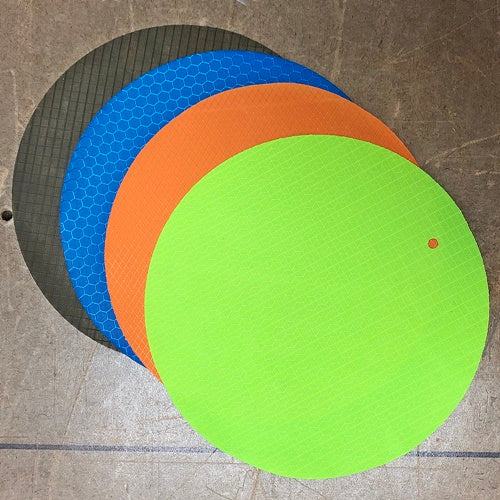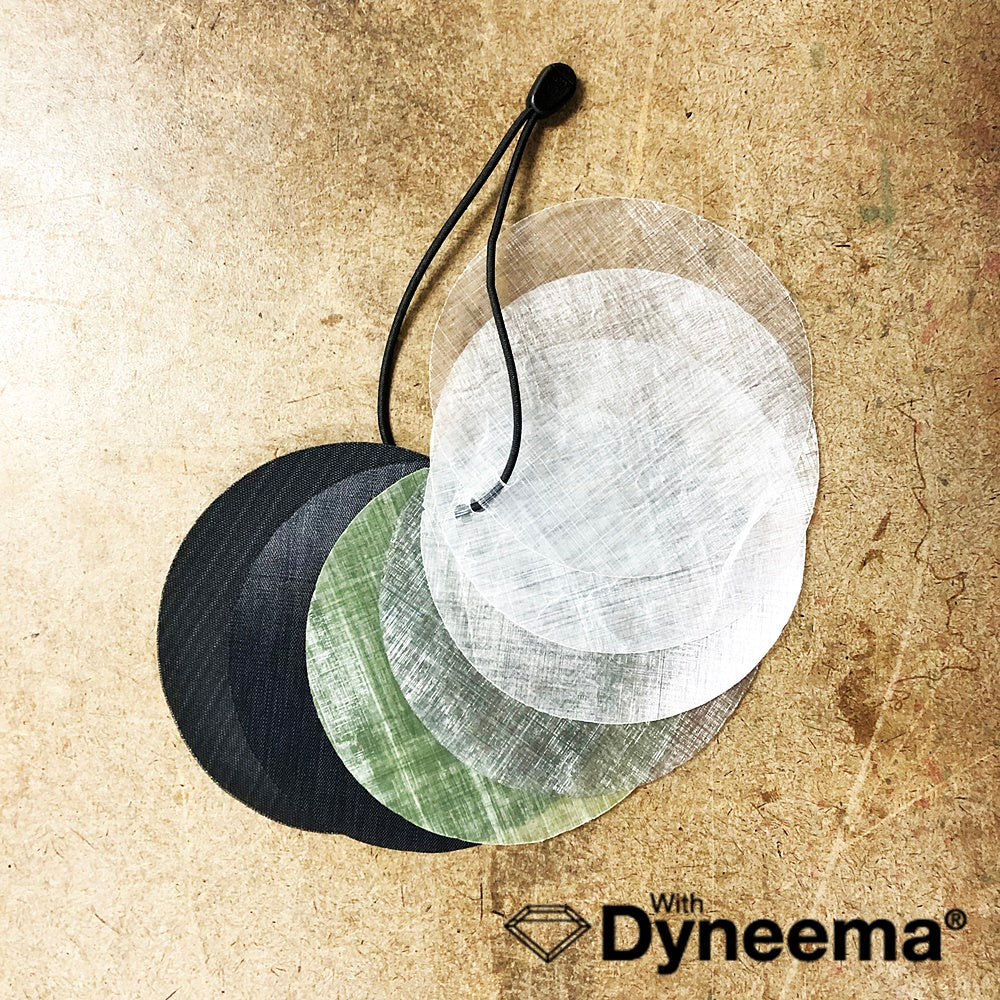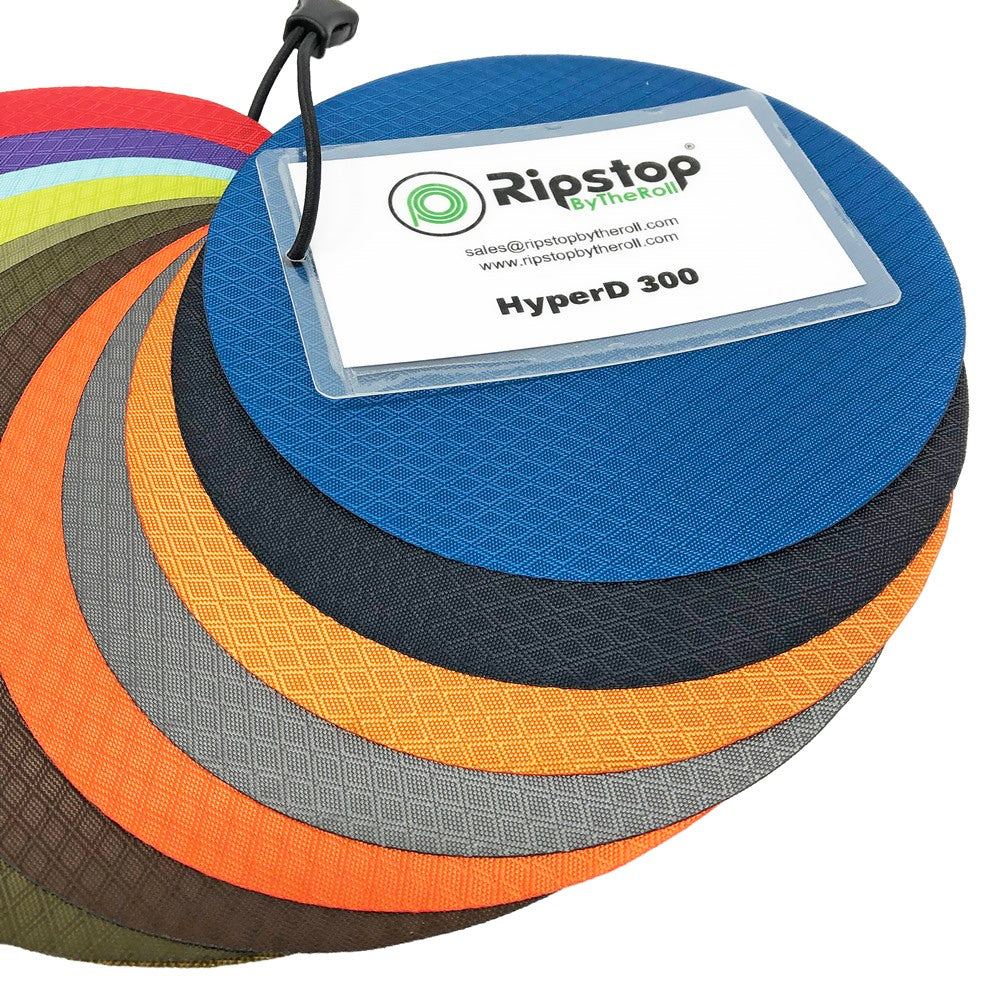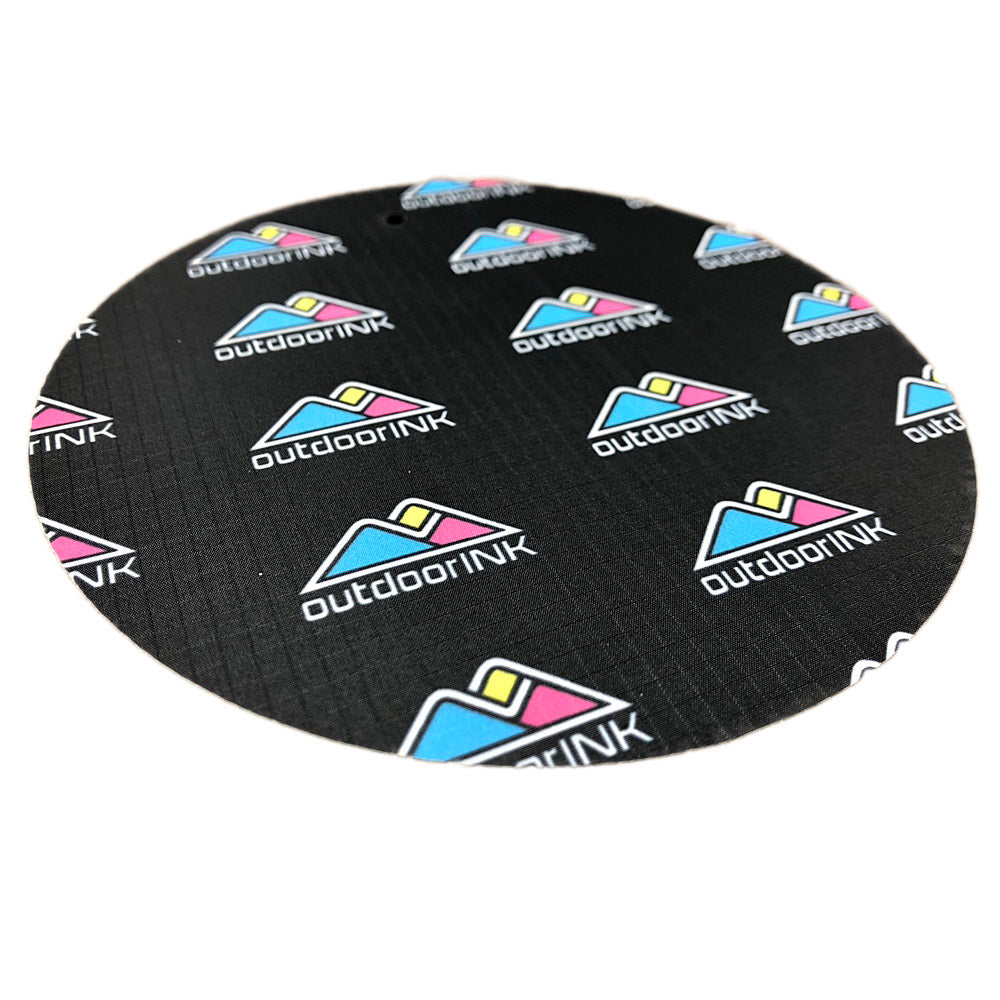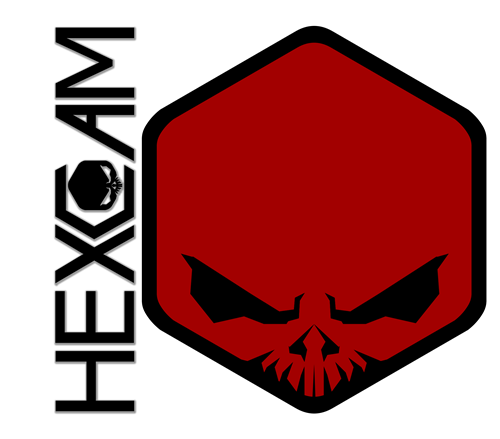A-TACs Camo
Popular licensed camouflage brand known for its efficacy in arid environments.
Category: Camouflage
Read more >>>
AIRWAVE
RBTR's custom line of fabrics with Air-Textured Yarn
Category: Brand Partner
Read more >>>
AmSteel®
AmSteel ®is a cord that is comprised of Dyneema® fibers made by Samson Ropes.
Category: Brand partners
Read more >>>
Aramid
Aramid is a type kevlar fiber known for having a very high tear strength.
Category: Fibers/Technology
Read more >>>
ASTM
American Society for Testing and Materials. ASTM is the governing body for textile standards. Many of the tests we perform on our fabrics, (tear strength, tensile strength, HH, etc.), are performed to these standards.
Category: Testing
Read more >>>
Air Textured Yarn (ATY)
ATY is a type of yarn that is made with the use of a stream of air blown through the yarn Made to deliver a softer touch of the finished fabric
Category: Fabric Finishing
Read more >>>
Ballistic Nylon
A highly-durable and abrasion resistant nylon based fabric.
Category: Fibers/Technology
Read more >>>
Bleed
The bleed is where the printing runs over the boundary lines slightly.
Category: OutdoorINK
Read more >>>
Bobbin
A small cylindrical part of a sewing machine that stores thread.
Category: Sewing
Read more >>>
Bobbin Tension
The tension put on the thread as it comes up through the machine.
Category: Sewing
Read more >>>
Bodkin
A sewing tool used to feed cord through a channel.
Category: Sewing
Read more >>>
CAD
CAD: Computer Aided Design. These programs allow for 2d and 3d drawings to be made. Used in 3d printing, laser/cnc cutting/patterning and much more.
Category:Contract Cutting
Read more >>>
Calendered
When fabric is fed through hot and heavy rollers which seals the weave and makes it downproof.
Category:Fabric Finishing
Read more >>>
Carbon Fiber
A type of composite fiber used to make a variety of structures.
Category: Fiber/Technology
Read more >>>
CFM
CFM is a measure of wind permeability of a fabric. 0 CFM is complete wind-proofness. CFM is measured in Cubic Feet Per Minute
Resource: https://blog.jans.com/an-explanation-of-technical-clothing-ratings/
Category: Testing
Read more >>>
Circular Knit
Circular knit is a type of knitting where the threads are woven together by a circular action.
Category: Fibers/Technology
Read more >>>
CLO Value
CLO value is a rating of thermal insulation.
Category: Testing
Read more >>>
CMYK
CMYK stands for Cyan, Magenta, Yellow, and Key.
Category: OutdoorINK
Read more >>>
Coating
When a chemical layer is bonded to a or both sides of fabric.
Category: Fabric Finishing
Read more >>>
Color Profile
Color Profile refers (in our case) to the specific and technical formulas required to achieve standardized color on different fabrics.
Category: OutdoorINK
Read more >>>
Cordura ®
Cordura® is a fabric brand most well known for 500D and 1000D variants.
Category: Brand Partner
Read more >>>
Cut on the Fly
Flying cut, refers to the use of the laser while it’s cutting. Where often times, the laser will go on and off in between cuts.
Category: Contract Cutting
Read more >>>
Cut Yardage
When fabric is cut to the exact yardage specified by the customer.
Category: Fulfillment
Read more >>>
Dart
A dart is a patterning technique used to give dimension or add shape to a finished product.
Category: Sewing
Read more >>>
Denier
Denier is a measurement of fiber weight per unit length.
Category:Fibers/Technology
Read more >>>
Density Linearization
Density linearization is a corrective system that adjusts the amount of ink given to certain areas to improve print quality.
Category: OutdoorINK
Read more >>>
Direct to Garment
Direct to Garment printing is a type of printing where the printing is done directly to a specifically cut or sewn piece of fabric.
Category: OutdoorINK
Read more >>>
Direct to Textile
Direct to Textile printing is a type of printing where the printing is done directly from a printer to a roll of material.
Category:OutdoorINK
Read more >>>
Dobby
A weaving method in which warp yarns are moved up or down by harnesses, creating simple geometric patterns in the finished woven fabric.
Category: Fibers/Technology
Read more >>>
Double Ripstop
Double-ripstop fabric has two grids within the fabric weave that can increase strength and tear resistance, but are also for aesthetics.
Category: Fibers/Technology
Read more >>>
Downproof
A fabric that can not be penetrated by down clusters. This can be done by thread weave, coating, calendering or other methods.
Category:Fabric Finishing
Read more >>>
DPI
Drawn Textured Yarn (DTY)
DTY is a polyester monofilament yarn that results in a soft hand feel and high-durability.
Category: Fabric Finishing
Read more >>>
DWG
“DWG is a binary file format used for containing 2D and 3D design data. DWG files are basically CAD (Computer Aided Design) drawings consisting of vector image data and metadata written with binary coding.”
Category: Contract Cutting
Read more >>>
DXF
Stands for Design Exchange Format or Design Interchange Format. DXF is a type of f ile format that enables data sharing between AutoCAD and other file forms.
Category:Contract Cutting
Read more >>>
Dye Sublimation
Dye Sublimation is the process we use to print on technical fabrics.
Category:OutdoorINK
Read more >>>
Dyneema®
Dyneema® is a branded ultra-high-molecular-weight-polyethylene fiber. An ultra strong fiber that can be integrated with fabrics for waterproofness, breathability, and tear strength.
Category: Brand Partner
Read more >>>
Dyneema® Composite Fabric
Is a nonwoven material consisting of ultra-high-molecular-weight-polyethylene fibers, adhesives, and PET film. This results in an ultra strong material when compared to finished weight that maximizes waterproofness, tensile, and tear strength.
Also referred to as DCF (Dyneema Composite Fabric) and formally referred to as Cuben FIber. Name changes happen with branding and patent adjustments.
Category:Fibers/Technology
Read more >>>
Fabric Memory
Fabric memory is the ability the fabric has to retain its shape after being deformed.
Category:Sewing
Read more >>>
Flat-Felled Seam
A flat-felled seam is a type of seam where you sew two pieces of fabric together, that need to lay flat and have high holding strength.
Category: Sewing
Read more >>>
French Seam
A french seam is a type of seam used often in garment making. A series of folds and stitches leave a very clean and comfortable seam.
Category:Sewing
Read more >>>
Grid Size
Grid size refers to the size of the individual pattern within the ripstop/gridstop fabric.
Category: Fibers/Fabric Technology
Read more >>>
Half Yard
One half yard is 18”. Most of our specialty fabrics, (i.e. Dyneema Composite Fabric and X-Pac), are sold by the half yard to minimize the cost of smaller projects.
Category: Fulfillment
Read more >>>
HDPE
HDPE stands for High Density Polyethylene
Category: Fibers/Fabric Technology
Read more >>>
HEXCAM Camo
HEXCAM is a type of camouflage brand
Category: Camouflage
Read more >>>
High-Tenacity (HT) Polyester
It is a stronger, finer yarn of polyester with a low stretch elongation. Commonly seen in high end outdoor-specific sewing threads.
Category: Fibers/Fabric Technology
Read more >>>
Hybrid Weave
A type of weave used in some of our hammock-specific fabrics.
Category: Fabric Finishing
Read more >>>
Hydrostatic Head
HH is a rating of how waterproof a fabric is.
Category: Testing
Read more >>>
HyperD
HyperD is our custom line of fabric that is known for the diamond dobby weave.
Category: RBTR Brand
Read more >>>
IDFL
The IDFL is the largest down and feather testing laboratory in the world.
Category: Testing
Read more >>>
JPG
A JPG is an image compressing form to easily send or retrieve images. Also seen as JPEG. Stands for, Joint Photographic Experts Group.
Category: OutdoorINK
Read more >>>
Kerf
The kerf is in reference to the material burned away by the laser cutter when cutting fabric. Usually this is between 0.8 and 1.0 millimeters.
Category: Contract Cutting
Read more >>>
Knit
Knit fabrics are made with a strand of single yarn continually looped to create the fabric. Knit fabrics have a long stretch elongation.
Category: Fabric Finishing
Read more >>>
Lap Seam
A lap seam is a type of seam where two fabrics are overlapped to create the seam.
Category: Sewing
Read more >>>
Laser Cutting
Laser cutting is a state-of-the-art mode to meticulously cut fabrics and other materials for precision, while saving time and money in the process.
Category: Contrcat Cutting
Read more >>>
Linear Meter
A linear meter of a fabric is a cut of one meter in length, not taking into account the width of the fabric.
Category: Fulfillment
Read more >>>
Linear Yard
A linear yard of a fabric is a cut of one yard in length, not taking into account the width of the fabric.
Category: Fulfillment
Read more >>>
Lockstitch
A lock stitch is the most common mechanical stitch made by a sewing machine. The upper and lower thread (from the needle and bobbin) twist or interlock.
Category: Sewing
Read more >
Milspec
Milspec stands for military specifications. There are certain classifications you have to meet to be deemed milspec.
Category: Fibers/Fabric Technology
Read more >>>
Monofilament
Similar to what you probably know of as a fishing line. Most synthetic fibers are created through an extrusion process that involves melting pellets of plastics, (i.e. nylon, polyester, etc.) that are then pushed through a device similar to a shower head. The result of this process is long synthetic fibers that cool and become monofilaments.
Category: Fibers/Fabric Technology
Read more >>>
MONOLITE
MONOLITE was developed to be a soft fabric with better durability and abrasion resistance. Constructed with a unique monofilament yarn and mesh weave, with a specialized coating to increase strength and reduce slippage.
Category: RBTR Brand
Read more >>>
MOQ
MOQ stands for minimum order quantity.
Category: Fulfillment
Read more >>>
MVTR
MVTR stands for moisture vapor transfer rate. This metric shows the efficacy of water vapor passing through a fabric
Category:Testing
Read more >>>
Narrow Goods
Narrow goods are materials that are measured with a width of 12” or less. This can be webbing, grosgrain, cordage, velcro etc.
Category: Fulfillment
Read more >>>
Nesting
Nesting is the process of arranging all of your parts to be cut into the smallest possible area to maximize material usage. It can be done manually or automatically, the latter being the preferred option in most cases.
Category: Contract Cutting
Read more >>>
Non-Woven
A fabric that is produced through means other than weaving. These methods can be mechanical, chemical, thermal, or a combination of all three.
Category: Fibers/Fabric Technology
Read more >>>
Nozzle
The nozzle is the piece of the printer that places and releases the ink.
Category: OutdoorINK
Read more >>>
Nylon
Nylon is a base fiber often used to create fabrics. Nylon has higher abrasion resistance, higher tear strength, and more stretch than polyester.
Category: Fibers/Fabric Technology
Read more >>>
Nylon 6.6
Nylon 6.6 is a synthetic polyamide that is stronger than standard nylon.
Category: Fiber/Fabric Technology
Read more >>>
OutdoorINK
OutdoorINK is Ripstop by the Roll’s custom print service. Specially designed and engineered for technical outdoor fabrics.
Category: OutdoorINK
Read more >>>
Pantone
Pantone is a standardized colored matching system, used worldwide for textiles, printing and digital art.
Category: OutdoorINK
Read more >>>
PNG
Stands for Portable Network Graphics. PNG field are popular for sending and receiving graphics and images.
Category: OutdoorINK
Read more >>>
Polyester
Polyester is one of the most used polymers in the world. In textiles, polyester is often used in apparel and furnishing. Polyester fibers are hydrophobic, generally available for printing via OutdoorINK/dye sublimation and are UV resistant.
Resource: https://www.diffen.com/difference/Nylon_vs_Polyester
Category: Fiber/Fabric Technology
Read more >>>
Presser Foot
The presser foot is a component of a sewing machine that holds your fabric in place so the needle can penetrate the most accurate place on your fabric and it can be fed through evenly.
Category: Sewing
Read more >>>
Prym1 Camo
Prym1 Camp is a type of design that uses natural shapes and patterns to create a life-like camp design.
Category: Camouflage
Read more >>>
PSA
PSA stands for Pressure Sensitive Adhesive. DCF repair tape, PET tape, and tenacious tape are all considered PSA's.
Category: Sewing
Read more >>>
PU Coating
Polyurethane coatings are the most ubiquitous coating found in outdoor textiles because they offer a balance of cost, ability to seal easily with seam tapes and durability.
Category:Fabric Finishing
Read more >>>
Quilting Loop
Quilting loops are hand-sewn loose loops that help keep insulation together when quilting or sewing a synthetic insulated blanket/product.
Category: Sewing
Read more >>>
Raster Image
“A raster image is an image file format that is defined by a pixel that has one or more numbers associated with it..."
Category: OutdoorINK
Read more >>>
RELV Camo
RELV Camo is a company that creates unique print-ready artwork. Ranging from Fashion to technical, RELV Camo has a variety of one-of-a-kind designs.
Category: Camouflage
Read more >>>
Repeat Patterns
Repeat patterns are options within our custom design tool where you let the pattern repeat across the printable space.
Category:OutdoorINK
Read more >
RGB
Stands for: Red, Green, Blue
RGB color model is a way that computers read colors to produce the most accurate rendition. Where each color is rendered through various forms of RGB.
Category: OutdoorINK
Read more >>>
Ripstop Nylon
A type of nylon fabric that can be more resistant to tears and rips spreading. Typically made with a repeating pattern within the threads that increases the fabric tear strength with little to no increase in weight.
Category: Fibers/Fabric Technology
Read more >>>
Ripstop Polyester
A type of polyester fabric that can be more resistant to tears and rips.Typically made with a repeating pattern within the threads that increases the fabric tear strength with little to no increase in weight.
Category: Fibers/Fabric Technology
Read more >>>
ROBIC
ROBIC is a brand of Nylon 6 fiber.
Category: Brand Partner
Read more >>>
Roll Goods
Roll goods are products, often fabrics and materials, that are stored on a cardboard or PVC core.
Category: Fulfillment
Read more >>>
Rolled Hem
A Rolled hem is a way to hide raw edges on your fabrics. Rolled hems happen when you put two olds of the fabric edge so the edge is clean and the fraying is hidden. Also used to create channels for cordage or elastics.
Category:Sewing
Read more >>>
Seam Seal
Seams are often one of the most susceptible places for water leakage. Seam sealer is a simple and easy way to waterproof your tarps, tents, and other seams. Seam sealer comes in liquid forms and tape forms.
Category: Sewing
Read more >>>
Seamless Repeat
A seamless pattern (or repeating pattern) is a pattern that can be repeated endlessly without any visible seams or interruptions.
Category: OutdoorINK
Read more >>>
Serger
A serger is a special type of sewing machine that applies a serging technique. Common used on apparel and other applications where you need to cover the raw edge.
Category:Sewing
Read more >>>
Silicone Coated
Sil coatings have become much more standard in the last 10 years in the industry. Usually, silicone is applied to both sides of nylon or polyester (also called impregnation) to waterproof the base woven fabric.
Category:Fabric Finishing
Read more >>>
Silicone Impregnated
Silicone impregnated - soaked or saturated with a substance. commonly used to refer to fully coated siliconized fabrics
Category:Fabric Finishing
Read more >
Silnylon
Silnylon is a synthetic fabric impregnated with silicone to create a waterproof and stronger overall material. See Silicone Coating definition for more information.
Category: Fibers/Fabric Technology
Read more >>>
Silpoly
Silpoly is a polyester fabric impregnated with silicone. Silpoly fabrics is great for creating a waterproof membrane that can be used for any type of camping shelters like tarps and tents. You can also use Silpoly in ponchos, gear sacks, pack covers, or other applications where durable waterproof/windproof fabric is needed. Other benefits of Silpoly are resistance to stretching when wet, and longevity with reasonable care.
Category: Fibers/Fabric Technology
Read more >>>
Step and Repeat
Step and Repeat printing is a type where the same image or series of images are printed repeatedly all over the material.
Category: OutdoorINK
Read more >>>
Taffeta
A fabric most often woven with silk, polyester, or nylon. Taffeta is a plain woven, utilizing a single warp thread going over/under a single weft thread.
Category: Fibers/Fabric Technology
Read more >>>
Tex
Tex is a common way that sewing thread is measured.
Category: Sewing
Read more >>>
Thread
Thread is made from woven yarns to create a single cord like structure. Thread is used to connect panels of fabric or materials by ways of seams.
Category: Sewing
Read more >>>
Thread Count
The combined number of threads taken from the warp and weft.
Category: Fibers/Fabric Technology
Read more >>>
Thread Slippage
Slippage is when the individual fibers that make up a fabric, or yarns, slide over one another. When you try to tear a fabric, slippage allows the yarns to bunch up, rather than remaining fixed in position.
Category: Sewing
Read more >>>
Thread Snips
Thread snips are vital when sewing a project. Each time you start and end a stitch, there are bits of thread that are no longer needed. These small (usually spring loaded) scissors help you quickly snip off the extraneous bits.
Category: Sewing
Read more >>>
Thread Tension
Thread tension refers to the tension on sewing thread from the cone of thread to the needle.Tension is commonly created/adjusted using springs/discs.
Category: Sewing
Read more >>>
Transfer Paper
Transfer paper is used in textile printing. In dye sublimation, ink is printed onto transfer paper and then either pressed or calendered to allow the ink to bond with the fabric.
Category: Sewing
Read more >>>
UHMWPE
Stands for Ultra-High-Molecular-Weight-Polyethylene. Used often in fabrics and rope, ballistics/defense, PPE and medical applications.
UHMWPE fiber is known for its strength-to-weight ratio, cut resistance, water resistance and low UV penetrability. Examples of branded UHMWPE fibers include Dyneema and Spectra.
Category: Fibers/Fabric Technology
Read more >>>
Uncalendered
Uncalendered fabrics are fabrics whose yarn has not been sealed with the calendered process. Most fabrics we offer are uncalendered. We only use uncalendered as a signifier when a given fabric has a calendered option for purchase.
Category: Fibers/Fabric Technology
Read more >
Usable Width
Useable width is the part of the fabric that is in between the selvedge.
Category: Fulfillment
Read more >>>
Warp
The warp of a material refers to the vertical or lengthwise direction of a fabric.
Category: Fabric Finishing
Read more >>>
Weft
The weft of a material refers to the horizontal or widthwise direction of a fabric.
Category: Fabric Finishing
Read more >>>
Width
The total width of the fabric is selvage to selvage.
Category: OutdoorINK
Read more >>>
Yard
Yarn
A collection of fibers woven into a long, continuous piece that can then go through the weaving process to form a finished fabric.
Category: Fabric Finishing
Read more >>>
Zund
Zund is a Swiss technology company known for creating material and textile cutting software and machinery.
Category:Contract Cutting
Read more >>>













